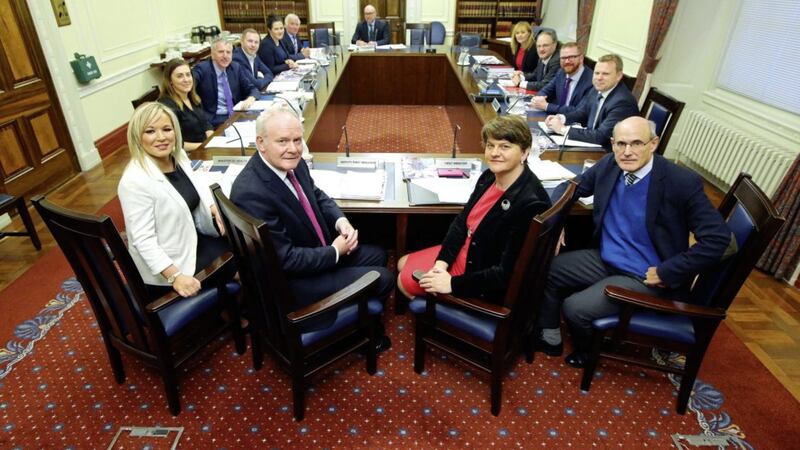THE Bengoa Report has its first celebrity endorsement.
Freddie Mercury tribute singer Harry Hamilton, better known as Flash Harry, has told the press he was "more than happy" to be driven past his nearest hospital in Craigavon to a specialist facility in Belfast after suffering a heart attack.
Hamilton had a complete blockage of an artery, requiring treatment that as of this year has been consolidated in Northern Ireland in just two regional centres of excellence, at the Royal Victoria and Altnagelvin hospitals.
Altnagelvin also provides the service to Donegal. The treatment is appropriate in 40 per cent of heart attack cases, identified by first responders.
This is the vision for the NHS set out in the 2016 Bengoa Report, commissioned and endorsed by Stormont ministers then dropped down the back of a radiator like all other reports before it.
Since devolution collapsed, civil servants at the Department of Health have become more audacious in progressing and promoting Bengoa on their own.
A perfectly timed press release this week made no mention of Hamilton but noted the service he received is "a proven success story" and delivers life-saving treatment quickly "despite bypassing other hospitals".
Every report published on health reform in Northern Ireland over the past two decades has concluded we have too many hospitals and smaller ones should be closed as unviable or unable to provide the best care.
Officials are now moving debate onto the next level, where numbers and size are beside the point. The very concept of a general hospital is what is being marked for redundancy.
Newspapers report Hamilton was driven right past Craigavon's general hospital, one of the largest in Northern Ireland.
It is difficult enough to convince people in towns with small hospitals, such as Newry and Downpatrick, that they may be better off travelling some distance for care.
How much harder will it be to convince the quarter of a million people in Craigavon's catchment area that they should go an extra 30 miles with a blocked aorta?
In the department's press release, its top civil servant Richard Pengelly says: "We all naturally take comfort from having services on our doorsteps, particularly in emergencies. However, there is a careful balance to be struck between accessibility and quality of treatment."
In a way, the emergency nature of a heart attack makes the centralisation of this service easier to sell. Patients are admitted directly to the specialist centres and treated immediately - they just have to dial 999.
There is no need to go to accident and emergency first, then wait for a bed and a surgeon to be found, preferably in the same hospital building.
The best-known example of centralisation and specialisation to date in Northern Ireland is the regional Cancer Centre at Belfast City Hospital.
The quality of its care has helped sell the concept to the public. But getting to and from the centre can be a bit of a rigmarole, not just in terms of transportation but in the inevitable requirement for many patients to be transferred from other hospitals, or to have aspects of their care delivered elsewhere, including at home.
This often involves ambulances, which can be hard to obtain at busy periods in Belfast and are diverted from front-line duty for hours by a long, complex transfer. Even the private ambulances health trusts call on for transfer work are frequently overbooked.
Bengoa said nothing about ambulance provision in Northern Ireland, other than noting an ageing population is placing it under mounting strain.
There is no acknowledgement that a move to regional specialist centres might need its own region-wide transport policy, both as a practical necessity and to give people confidence in reform.
This appear to be a bit of a blind spot with health officials. Separate to Bengoa, they are currently reducing waiting lists by setting up temporary specialist clinics, some of them in underused parts of smaller hospitals.
The cataract clinic is in Downpatrick, to which patients from across Northern Ireland are now being asked to make their own way.
Cataract surgery is a quick day procedure but of course you cannot drive before or afterwards and most patients are elderly, so may not have a partner to help.
The Department of Education manages to get one quarter of Northern Ireland's school children to and from home every day via public transport and dedicated transport, including for pupils with special needs.
To deliver and sell its vision, the Department of Health needs to consider a similar task.
newton@irishnews.com









